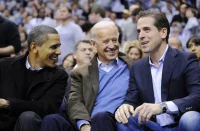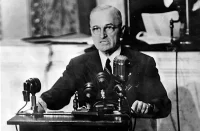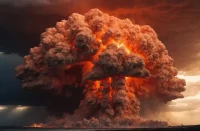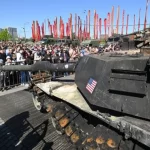In regard to international relations (IR), power is understood as the ability of state or other political actors to impose its own control or influence over other state(s) or other political actors, or at least to influence the outcome of events on the local, regional or global level. Power politics as a phenomenon has two dimensions: internal and external. The internal dimension is applied in the inner policy of the state and the external in the foreign affairs or outside of the home politics. The powerfulness of a state depends on its real independence or sovereignty from outside influence on both formulation and realization of its own policy. The internal power is represented by the level of autonomy in the inner affairs while the external power corresponds to capacity to control the behaviour and influence from the outside in domestic affairs and to influence by itself the affairs and politics of the others. However, a majority of researchers suggest that power politics mostly means the potential capacity and practical ability to influence the behaviour of other actors in IR in accordance with its own aims calculated into the framework of public or secret national interests.
Fear of the Others
The question of balance of power is one of the most important and most discussed issues in the studies of IR and global politics. From the very point of description, the term balance of power means the relative distribution of power between the states or other actors in politics either into equal or unequal shares. In other words, it is „A condition in which no one state predominates over others, tending to create general equilibrium and curb the hegemonic ambitions of all states“.[1] The essential aim of the policy of balancing of power is to establish such system in IR in which no one actor (usually the state) will have a predominance over others as the optimal mechanism to protect security on different levels. This is a policy of equilibrium with the focal argument in favour of balancing of power in IR is that unbalanced power is dangerous for the preservation of peace and the promotion of security. In practice, several weaker states can create political-military bloc in order to resist to a real or potential hegemonic (imperialistic) actor or one state can activate a self-conscious balancing action by changing sides in order to preserve the equilibrium as too much power on one side may bring about self-defeating reactions of fear and hostility coming from other side (state or bloc).
A branch of Realist IR theories (Defensive Structural Realism) argues that all states seek its own national security in the international system of politics which is in essence of an anarchic nature.[2] The main security threat to state’s security and its well-being comes primarily from other states. Defensive structural realists tend to prove that balancing of power in international relations is a quite appropriate response to threatening concentrations of (military) power by other states or actors in global politics. According to their opinion, a balance of power among great powers (GP) is of linear and dyadic but not of systematic and automatic character.[3]
If one GP tends to dominate in the global arena, as for instance tends the US after 1990,[4] the only way to constrain a conflict or war is to re-activate a system of „Balance of Power“ or „Fear of the Others“ that is exactly what V. Putin’s Russia is doing after the US’ colony Kosovo(stan) unilaterally proclaimed „independence“ in February 2008. The first fruitful results of V. Putin’s new IR’s policy of „Fear of the Others“ came in August 2008 at the Caucasus with the war against the US’ client-state Georgia followed several years later by up to now successful military intervention in Syria which only due to Russia did not experience a destiny of Libya in 2011 when the country was bombed by the US’ navy for the sake to change Libya’s government by force.
It is clear that Russia after February 2008 decided to cope on all levels with the Western (the US/NATO/EU’s) Russophobic foreign policy doctrine as Moscow finally understood that the eternal nature of the Western (Russophobic paranoia) politics toward Russia is framed by the ideas coming from Thomas Hobbes’ Leviathan (1651). In particular, Th. Hobbes’ calling for absolutist government, as the only alternative to the anarchy of the „state of nature“,[5] is seen by Moscow as the prime driving force of the post-Cold War’s Western struggle for total dominance and universal hegemony under which Russia has to be either voluntarily transformed into another Western neo-liberal colony like all ex-socialist European countries or to be occupied by the NATO’s military machinery like Serbia’s southern province of Kosovo (in fact, Kosovo-Metochia).[6] Obviously, as the realization of the first option by using B. Yeltsin as a „Trojan horse“ in Kremlin failed, the West opted for the second option which is currently in the process of preparation for the execution (the WWIII). Subsequently, the NATO’s tanks and army are today on the very border with Russia (including and German) likewise the Nazi German army was on the very border with the USSR just before the „Barbarossa“ operation started in June 1941.
Principles of Political Realism
It seems to be true that V. Putin’s Russia understood well that the Western gangsters of the EU and the NATO can accept in IR only the politics of a „Political Realism“ that is an account of world politics which is functioning on the „natural realistic“ foundations:
- No wishful thinking and moralizing.
- Global politics is the first and the last about power and self-interest in the international arena.
- Only the „Power Politics“ model can be accepted in dealing with IR.
- Global politics is a struggle for power over mankind.
- Only the concept of „Egoism“ or „Selfishness“ is fruitful in global politics, what means that „our“ national interests are morally superior in comparison with those interests by all others.
- (Quasi)Universal moral principles do not guide the behaviour of the states on the international scene but only a self-interest.
- Reciprocal interactions among component parts of the system of global politics are necessary.[7]
- Building-up of military capacity for „defensive“ reasons by one GP state has to be all the time realistically interpreted as a very potentially aggressive by other GP states.[8]
- Applying politics of „Defensive Realism“ to prioritize national security and beat the Western policy of „Offensive Realism“ as traditionally the primary motivation of the Western politics in IR is to acquire power and supremacy over the others.
Power Politics vs. Balance of Power
We have to remember that the founders of a modern „Power Politics“ model are Florentine political thinker Niccolò Machiavelli (1469−1527) and mentioned above English political theorist Thomas Hobbes. Both of them shared a belief that the crucial elements of global politics are power and security. The rest are just instruments to achieve these two goals. Therefore, the authorities (rulers, governments), must be all the time preoccupied with keeping power regardless of wartime or peacetime. The best, if not the only, way to maintain the power and security of the governed territory is to keep as stronger as armed forces. Those rulers or governments who will neglect military matters of power and security will lose power. Th. Hobbes in this matter was quite clear that power after power is both perpetual and restless desire by the rulers that ceases only in their death.[9] A story of the USA is probably in modern history the best representative example of the model. Nevertheless, after the NATO’s military aggression on Serbia and Montenegro in 1999, at that time Russia’s PM Vladimir Putin decided to force Russia’s pro-Western President Boris Yeltsin to abdicate and now being instead of him in power to accept a new doctrine of „Power Politics“ in IR as with the global Western bandits is not possible to cope in the white gloves. It is known that the power produces countervailing power that is after certain time resulting in a „Balance of Power“ – a concept of global security accepted by Moscow from 2000 onward.
The concept of „Balance of Power“ among GP is essential element of the theory of Realism upon global politics which from 1648 to 1990 pervaded the politics of all members of GP’s community. It is in fact a belief that the only way to limit the power of expansive states is to confront them with equal or even greater power that is exactly a new state-doctrine policy adopted by Moscow of V. Putin’s era in dealing with the American prolonged policy of imperialism[10] after the Cold War with a belief that the concept of „Balance of Power“ is going still to be conductive in the 21st century’s global politics.[11] It is also required by this concept of world security that, if the survival of any global GP is under the question, other GP should join in alliance and raise armies to the level of a quite sufficient size in order to frustrate potential aggressor or to stop the creation of a single global hyper-power state. The last point was exactly what the West European GP (all of them are the members of the NATO) did not want to do and moreover directly collaborated with the US administration after 1990 in the process of transformation of the US into unquestionable global policemen with unchallenged military power. Therefore, Moscow, firstly getting rid of pro-Western B. Yeltsin’s liberals in power, after 2000 was forced to activate the concept of „Balance of Power“ for the sake of both national and global security.
Furthermore, the system of alliances, as an integral part of the concept of „Balance of Power“ is also necessary to be activated in order to cope in this case with the contemporary US-led Western policy of global hegemony.[12] It is true that historically the systems of alliances have been of temporary character as they were based on expediency to resolve a specific problem and usually have been dissolved after achieving their primary goal(s). In regard to the Western military alliance in a form of the NATO (est. 1949 under the US leadership), its prime goals are:
- To eliminate independent Russia as any significant player in global politics.
- To install in Moscow its own controlled regime of pro-Western quislings.
- To minimize Russia’s state territory as much as possible (Moscovia as enlarged territory around Moscow).
- To have full exploitation dominance over Russia’s extremely reach and various natural resources.
In the case that these plans will be realized, the West would have an absolute and undisputable control over geopolitically most important part of the world – the Eurasian Heartland.[13]
The concept of „Balance of Power“ in global politics refers to a specific world security mechanism according to which, GP should collaborate with each other for the sake to protect their own national independence from all of those countries who pretend to establish a hegemonic dominance on the global level, seeking to be a global leader (i.e., hegemon). If at least one state became ambitious in rising power especially in economic and military terms, it is usually understood by the others as a threat to their own sovereignty, power and position that is in many cases resulting in the creation of a counterweight military-political coalition, alliance or bloc for the sake to maintain a balance of power within the current system of IR.[14] An aggression by one GP results in the formation of a defensive political-military alliance by several other GP in order to keep an equilibrium of powers in global politics. Therefore, the creation of the NATO in 1949 as a military mechanism of the US global hegemony after the WWII, for instance, resulted in the creation of the Warsaw Pact in 1955 in order to keep a military counter-balance on the global level. Furthermore, the open policy of gangsterisation of the world and IR launched by the US after the dissolution of the USSR, produced from the year of 2000 a Russian policy of the rearmament followed by a new bipolar world strategy of global security. In essence, the concept of „Balance of Power“ indicates that serious threats to systematic peace and security have to activate a system of defensive coalitions in order to combat them having in mind, nevertheless, that such alliances are of a temporary character and, therefore, they are usually going to be fragmented once the threat is removed. In other words, such alliances based on the concept of „Balance of Power“ are temporary arrangements which exist until the time when a common aggressor is defeated or pacified.
Nevertheless, it has to be noted that „Balance of Power“ is not working as a formal institutional mechanism for global peace and stability like, for instance, the UNO after 1945. According to this concept of security, the peace is provided only in the case when power is distributed more or less on an equal basis among the actors in global politics as only at such a way no one GP can dominate others. The GP constantly have to monitor the military capabilities of the others and if necessary to create or join alliances for the sake of counterbalancing those actors who became too strong at the moment. Therefore, the concept of „Balance of Power“ suggests that power inevitably creates counterpower and arms race. That is a key issue of the concept of „Security Dilemma“ – a condition in which actions taken by one actor or state to improve its own (national) security are usually understood as a preparation for the military action (aggression) by other actors or states, and, thereby provoking the same action (or counter-action) on opposite side.[15]
The GP, like all other states, can do balancing in two ways by applying either the „internal“ or the „external“ type of it:
- The „internal“ type is based on state’s improving its own military power by increasing military budget or/and improving the military arsenal by developing new and usually more sophisticated weapons compared to potential enemies. In such a way, the state is not forced to join any alliance being independent in defence policy and protecting its own security by itself. However, in practice, it is possible only for the most powerful actors usually named as superpowers who even in this case can establish its own military bloc in which they are playing a hegemonic role like the USA and the USSR did during the Cold War. Nevertheless, the „internal“ balancing cannot be realized quickly especially when the state is faced by the immediate threat of war.
- The „external“ type of balancing power is based on making coalitions or alliances with one or more other actors for the sake to counter a potential aggressor. In reality, there is no permanent friends or enemies or even ideological barriers to limit the flexibility of concluding political-military alliances among the states. A principal benefit of balancing power by making alliances is that such system provides a fast response if needed, but at the same time it requires costs by actors by committing them to follow joint policies and limiting their independence as the national security in this case very much depends on others.
The prime security benefit of balancing power is that а relative equality in (military) power between GP is limiting real possibilities of war for the very reason that a potential aggressor is not sure in the success of its action as the chances are something like 50-50%. For instance, if the system of global security based on the concept of balancing power existed after the Cold War Washington and its quisling states around the NATO will not initiate two wars against Iraq (in 1991 and 2003), invade and occupy Afghanistan in 2001 or commit aggression on the Federal Republic of Yugoslavia in 1999.[16]
Forms of Global Security
Finally, there are three forms of global security in direct relation to the distribution of power among the states especially GP:
- Unipolarity – when a single superpower state dominates the system of IR.
- Bipolarity – when two states or blocs of states are roughly equal in power.
- Multipolarity – when at least three or more states (GP) regulates the international system.[17]
[1] Andrew Heywood, Global Politics, London−New York: Palgrave Macmillan, 2011, 8.
[2] About Defensive Realism in Security studies, see more in [Shiping Tang, A Theory of Security Strategy for Our Time: Defensive Realism, London−New York: Palgrave Macmillan, 2010].
[3] Martin Griffiths (ed.), International Relations Theory for the Twenty-First Century. An Introduction, London−New York: Routledge, 2007, 17.
[4] John Baylis, Steve Smith, Patricia Owens, The Globalization of World Politics: An Introduction to International Relations, Fourth edition, New York: Oxford University Press, 2008, 75−76.
[5] Thomas Hobbes, Leviathan, London: Penguin Books, 1982.
[6] On illegal and brutal NATO’s military intervention against the Federal Republic of Yugoslavia in 1999, see in [Пјер Пеан, Косово: „Праведни“ рат за стварање мафијашке државе, Службени гласник: Београд, 2013, 95−106].
[7] For instance, the Russian direct military support of the South Ossetian secessionism from Georgia in August 2008 was a reciprocal interaction for the US’ diplomatic support of the act of Kosovo’s proclamation of independence in February 2008.
[8] As an example, we can notice the Russian military preparation during the last several years for the defensive war against the NATO’s invaders who are for “defence” purpose concentrated a huge army’s arsenal on the very border with Russia from 2014 onward. Russia is as well very suspicious about the reasons of the real existence of the NATO after the dissolution of the USSR and ending of the Cold War, but especially about the very reasons of the NATO’s eastward enlargement from 1999 onward. Sincerely, contemporary Russia-US/EU/NATO’s rivalry is nothing else but a continuation of historical geopolitical Western confrontation with Russia [Срђан Перишић, Нова геополитика Русије, Београд: Медија центар „Одбрана“, 2015, 217−245]. As a matter of fact, after the NATO’s imperialistic eastward enlargement in 1999, Russia proclaimed its own sphere of geopolitical interest known as “Regions of Privileged Interests” (i.e., the territory of ex-USSR) [Roger E. Kanet (ed.), Russian Foreign Policy in the 21st Century, London−New York: Palgrave Macmillan, 2011, 228−245]. On the post-Cold War Russia’s geopolitics from the heartland, see in [Stefano Guzzini (ed.), The Return of Geopolitics in Europe? Social Mechanisms and Foreign Policy Identity Crises, New York: Cambridge University Press, 2012, 192−216].
[9] Thomas Hobbes, Leviathan, London: Penguin Books, 1982; Niccolò Machiavelli, The Prince, New York: Dover Publications, Inc., 1992.
[10] Imperialism is a policy of extending a state’s authority by territorial acquisition or by establishment of economic and political hegemony over certain territories or even (quasi)states transforming them to the colonial status [Martin Griffiths, Terry O’Callaghan, Steven C. Roach, International Relations: The Key Concepts, Second edition, London−New York, Routledge, Taylor & Francis Group, 2008, 155−158]. More simple definition of imperialism is that it is “When one state controls the people and territory of another area” [Steven L. Spiegel et al, World Politics in a New Era, Third edition, Belmont, CA: Wadsworth/Thomson Learning, 2004, 153]. For instance, Kosovo case after June 1999 up today is a very example of the Western neo-colonial imperialism, but primarily by the US [Hannes Hofbauer, Eksperiment Kosovo: Povratak kolonijalizma, Beograd: Albatros Plus, 2009]. Nevertheless, “European imperialism created the global states system” [Jeffrey Haynes et al, World Politics, New York: Routledge, 2013, 54]. On the British and American imperial geopolitics, see in [John Agnew, Katharyne Mitchell, Gerard Toal (eds.), A Companion to Political Geography, Malden, MA: Blackwell Publishing, 2008, 177−186].
[11] On V. Putin’s Russia’s foreign policy, defence and security doctrine, see in [Eric Shiraev, Russian Government and Politics: Comparative Government and Politics, London−New York: Palgrave Macmillan, 2010, 255−303].
[12] Regardless to the fact that the US has more power resources in comparison to other states, and does well on military measures, the contemporary global politics is changing in a way that means Washington cannot achieve all its goals abroad acting alone [Andrew F. Cooper et al (eds.), The Oxford Handbook of Modern Diplomacy, New York: Oxford University Press, 2015, 562]. Therefore, the USA is forced either to make alliances with other states (the NATO) or to cooperate with them (the G20).
[13] Махди Даријус Наземроаја, „Амерички сан или мапа Русије после Трећег светског рата“, Нови Стандард, Београд, 2014-09-11: http://www.standard.rs/svet/29989; Срђан Перишић, Нова геополитика Русије, Београд: Медија центар „Одбрана“, 2015, 217−245.
[14] Paul R. Viotti, Mark V. Kauppi, International Relations and World Politics: Security, Economy, Identity, Fourth Edition, Upper Saddle River, New Jersey: Pearson Prentice Hall, 2009, 40.
[15] Karen A. Mingst, Essentials of International Relations, Third edition, New York−London: W. W. Norton & Company, 2004, 198, 202, 322.
[16] All US-waged post-Cold War wars, as many others before, have been fought against the international law violating the UN Charter. Therefore, those wars can be called as unjust contrary to the just war. On the concept of just war, see in [Alex J. Bellamy, Just Wars, Cambridge, UK: Polity, 2006].
[17] Andrew Heywood, Global Politics, London−New York: Palgrave Macmillan, 2011, 209−238.















Pingback: A Paranóia Russofóbica Ocidental após a Guerra Fria e a Segurança Global. | Dinâmica Global
Pingback: The Peaceable Kingdom In A World At War | OrientalReview.org – DE LA GRANDE VADROUILLE A LA LONGUE MARGE